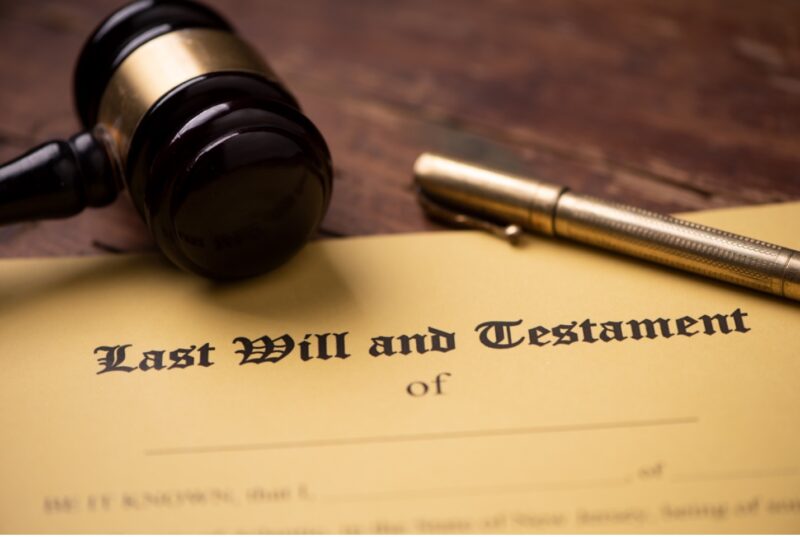Divorce can be a very trying time. You may experience a variety of emotions, including anger, sadness, grief, and even hope. While you look toward the next chapter of your life, you might not be thinking about your estate plan. However, divorce is a major change in life circumstances which often makes it advisable to revisit your Last Will and Testament and other estate planning documents. If you would like assistance with updating your will after divorce, consider contacting a knowledgeable estate planning lawyer at Von Rock Law by calling (866) 720-0195.
Why Should I Update My Will After Divorce?
A will often serves as the cornerstone of an estate plan. Your will explains what you want to happen to your property after your passing and may also name individuals to take on important roles. If you have recently divorced, your relationship with your ex may have changed so that you no longer want your ex-spouse to receive assets from your estate or serve in a trusted position. In the end, your will should reflect your wishes, whatever those may be. Your ex-spouse does not have the right to know the terms of your will, and you can change your will as often as you would like.
Does Divorce Invalidate a Will?
No, divorce does not generally invalidate a will. Divorce invalidates certain provisions in favor of your ex-spouse, such as previous provisions in which you named them as an executor or provided them with an inheritance. However, the remaining provisions in your will are still in effect.
Consequences of Not Updating a Will
If you do not update your will after divorce, some possible consequences could include:
- Your ex-spouse could try to claim estate assets based on the provisions of your old will.
- Your ex-spouse or one of their relatives may act as your executor or guardian of your minor children.
- Your stepchildren could receive a gift you had previously left them in your will, even though you are no longer married to their parent.
- Your ex-spouse could be prevented from acting as your executor or guardian, even though this is your intent.
- Part of your property might not be disposed of, with the result that a portion of your estate may be subject to the California Probate Code‘s provisions for intestate succession.
- You could accidentally leave out a new spouse and/or child.
Legal Effect of Divorce on Your Will
Spousal relationships enjoy a variety of special privileges under the laws of many states. The few automatic changes a divorce makes in the administration of an individual’s estate pursuant to their will are essentially designed to reverse some of these privileges. According to the California Probate Code, a divorce or annulment from your spouse has the following legal effects unless your will, updated after the divorce, specifically states otherwise:
Gifts
Any gift that you provided to your former spouse in your will is invalidated. The law treats the situation as though your spouse predeceased you.
Executor
Many spouses name the other spouse as the executor of their will. California law specifically provides for the automatic revocation of a designation of executor in the event of divorce. Therefore, your ex-spouse will not have the right to administer your estate unless your explicitly names the ex-spouse, after the divorce, as executor.
Trustee
Any provision in your will that nominates your spouse as trustee is also invalidated under California law. However, this does not automatically alter their trustee status according to the terms of a trust that was in place before your passing. To change that designation, review and follow the terms of the trust, which may require you to revoke the trust, make a written amendment that changes the trustee, or notify your ex-spouse of their removal as trustee.
Conservator or Guardian
During your marriage, you may have been fine with allowing your spouse the right to have control over your finances and medical care in case you ever became incapacitated. However, you may feel differently about this matter if you and your spouse have divorced. Fortunately, California law recognizes this distinction and automatically revokes the nomination of your ex-spouse as conservator or guardian.
Power of Appointment
Any other provision in the will that confers a general or special power of appointment to your ex-spouse is also automatically revoked. The law treats the situation as though your ex-spouse predeceased you so that they would be unable to serve in this capacity.
Restoring a Former Spouse to a Will
Relationships are as complex and multifaceted as the people in them. Some couples part amicably, and remain good friends despite no longer being married. In these cases, the automatic revocation of bequests made to an ex-spouse or the automatic revocation of roles to which they had previously been named may not represent a convenience. Fortunately, updating your estate plan can reverse these automatic reversals; the legal effects outlined above do not apply if you specifically state otherwise in your will or you remarry your ex-spouse.
Effect of Legal Separation
Some people choose to obtain a legal separation rather than getting a divorce, for various reasons. However, the California Probate Code clearly states that a decree of a legal separation that does not terminate the spousal relationship does not automatically terminate the provisions made for the spouse in the will as would divorce or annulment. The Probate Code also states that no other change of circumstances besides divorce or annulment legally revoke a will.
Therefore, if someone is legally separated when they pass away, the current spouse could still receive the property left to them in the will and be named in a fiduciary relationship, such as executor. Individuals who are not comfortable with this outcome should update their estate planning documents to reflect their current wishes. An experienced estate planning lawyer with Von Rock Law can review your situation and provide recommendations about updates you may wish to make. An attorney can also prepare the legal documents and help you execute them with the proper legal formalities.
How Do I Change My Beneficiary After Divorce?
The discussion above only concerns the changes to your last will and testament. If you do not want your spouse to inherit property you designated to them through other means, such as a revocable trust, you will need to follow the procedures for updating the documents pertaining to the relevant portions of your estate plan. For a living trust, it may be possible to simply change the names of designated beneficiaries in the existing trust documents. For life insurance proceeds, financial accounts, retirement plans, or other assets, it may be necessary to complete a new beneficiary form to designate a new beneficiary.
Contact an Estate Planning Lawyer for Assistance Updating Your Will After Divorce
If you have recently gotten a divorce and would like to update your will after divorce, consider contacting a knowledgeable estate planning lawyer at Von Rock Law. A lawyer can answer your questions, explain whether the automatic revocation rules can protect you, and recommend changes to make to your estate plan. You can schedule a confidential consultation by calling (866) 720-0195.




